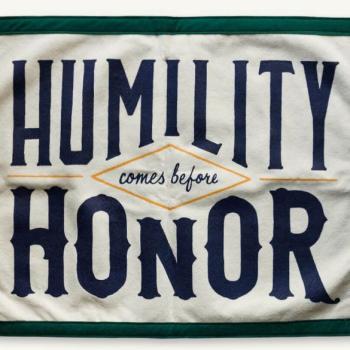‟Other seed fell among thorns, which grew up and choked the plants, so that they did not bear grain. Still other seed fell on good soil. It came up, grew, and produced a crop, some multiplying thirty, some sixty, some a hundred times.”
Then Jesus said, “Whoever has ears to hear, let them hear.” Mark 4:7-9 (NIV)
It’s all too easy for believers to read the Parable of the Sower and assume that we are the seed that fell on good soil. But it’s even easier for us to get complacent with our faith and let the thorns creep in.
The thorns symbolize the worries, pleasures, and riches of this life. These are the distractions and temptations that keep us from fully embracing and living out our faith.
There can be many reasons for this. One might be that we turn our Christian walk into a to-do list with boxes to check. Bible study—done! Tithe check—written! Once through the prayer list in the church’s weekly newsletter and I’m good to go till Sunday!
If we treat our walk with Christ like that, one of two things is bound to happen. One is that the relationship will become stale and perfunctory.
Even worse, though is the possibility that we might get burned out trying to keep up with our spiritual checklist. Then our spiritual disciplines become burdens rather than blessings.
But people don’t usually burn out like this all at once. It’s usually a gradual fade. Instead of putting God first, He becomes an IGTIWIGTI level priority (I’ll Get To It When I Get To It), and other things in our lives start to crowd Him out.
The thorns.
When Jesus was explaining this parable to His disciples, He described the process of the thorns this way:
Still others, like seed sown among thorns, hear the word; but the worries of this life, the deceitfulness of wealth and the desires for other things come in and choke the word, making it unfruitful. Mark 4:18-19 (NIV)
Thorns, when we become aware of them, take the form of excuses. These excuses frequently begin with, “I don’t have time.”
Now we all know that everyone has the same 24 hours in a day. So when we say we don’t have time, what we are really saying is, “This other thing is more of a priority to me.” Most likely, we are not aware in the moment that we are doing that, but what matters is this.
Thorns are idols.
The thorns in our lives are what we choose to put on the throne where God ought to be. If you want to know what your thorns are, look at your calendar and your credit card statement. Our reaction to that concept is usually to blameshift.
‟It can’t be our fault. We can’t control our circumstances!”
It is true that we can’t control our circumstances. But we can control how we respond to them.
“I can’t do my Bible study this morning, because I woke up too late.”
So wake up earlier. This may mean going to bed earlier. Which may mean one less TV show the night before. Do you think God really buys the excuse that you don’t have 15-30 minutes for him in the morning when you spent two hours last night watching something on Netflix that has no positive lasting value in your life whatsoever?
“You don’t understand. I’m tired. Life wears me out. You have no idea what I have to go through, and I never get any help.”
Yes, life does make us tired. Even King Solomon agrees:
It is useless, useless, said the Philosopher. Life is useless, all useless. You spend your life working, laboring, and what do you have to show for it? Generations come and generations go, but the world stays just the same. Ecclesiastes 1:2-4 (GNT)
Many are the days when all I want to do after a day at work is just to check out and shut down.
However, I believe that this is where trust comes in. Where did God ever say that this life was to be lived under our own strength? Do we really believe that God displays His strength in and through our weakness? Are we willing to trust Him to work things out, even when we can’t see what He’s up to?
Or are we afraid to let go? To give up control? To accept that the all-knowing God just MIGHT have a better plan in mind than the one we came up with?
I am now in my fifties. This is the part of life where it’s really easy to look back and get depressed about all the things I had hoped to accomplish by now—in my career, in my personal life, or whatever. I am finding it especially difficult dealing with the reality that those ships have sailed, and those dreams will never come true.
Guess what? Life wasn’t supposed to be lived like that. The American Dream is an illusion. Walking with God is a day-to-day thing. He’s the one with the big plans. If there’s one thing I’ve learned after a half-century plus, it’s that the greatest blessings in my life have happened when I least expected them. When I was just focusing on the moment.
Because here’s the thing. Moments add up. What seems like random, boring, day-to-day life is leading somewhere, if you have the sense to keep your eyes open for it.
So many times, I have asked God to let me in on what He is planning so that I can prepare for it and know what to do next. That’s not how it works. God wants us to simply report for duty. The only thing we need to know is that He is always at work, and He always has a place for us to join Him in that work.
But to do that, we have to keep our eyes fixed on Jesus, and not on the thorns.
Thanks for reading. Since it appears that the eclipse didn’t bring about the Rapture after all, perhaps we should talk about the End Times in detail? Make sure to click the Free Newsletter link so you’ll be ready for it next week!












